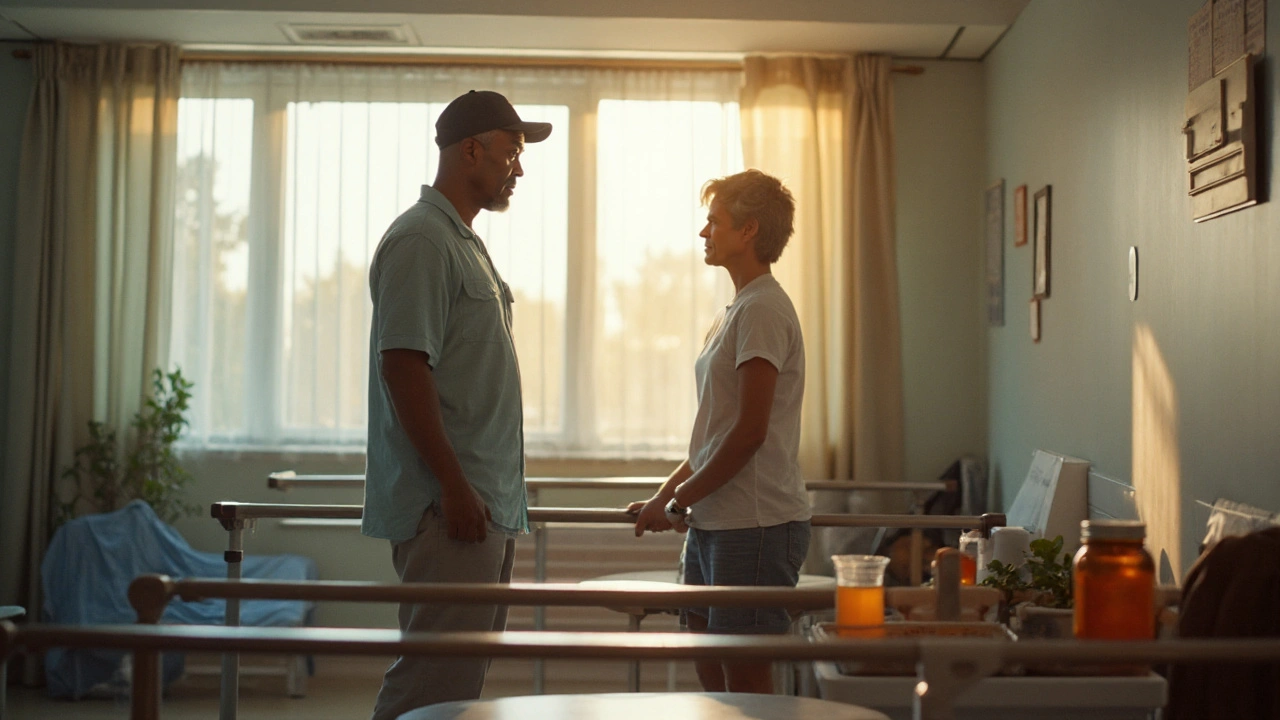Post‑Stroke Fatigue: What It Is and How to Beat It
If you’ve survived a stroke, you might notice a lingering tiredness that no amount of coffee seems to fix. That’s post‑stroke fatigue, a common symptom that can show up weeks or months after the event. It’s more than just being sleepy – it’s a deep‑seated lack of energy that makes everyday tasks feel like climbing a hill.
Why Fatigue Happens After a Stroke
When a brain injury occurs, the body goes into repair mode. Neurons need time to reconnect, and the brain may use extra energy to compensate for damaged areas. This extra demand often leaves you feeling wiped out. Hormonal shifts, medication side effects, and disrupted sleep patterns can add to the problem. Even simple things like a new medication for blood pressure or cholesterol might be pulling the rug out from under your stamina.
Practical Ways to Manage the Exhaustion
Start by tracking your energy. Write down when you feel most alert and when you hit a slump – you’ll spot patterns that help you plan activities. Break big chores into bite‑size steps and tackle them during your high‑energy windows. Rest isn’t lazy; it’s a strategic tool. A short 15‑minute nap in the afternoon can reset your system without ruining nighttime sleep.
Nutrition plays a quiet but big role. Aim for balanced meals with protein, complex carbs, and healthy fats. A handful of nuts or a yogurt with berries can stabilize blood sugar, preventing those crash‑and‑burn moments. Stay hydrated – dehydration magnifies fatigue, and many stroke survivors forget to drink enough water throughout the day.
Exercise might sound impossible, but gentle movement can boost energy in the long run. A 10‑minute walk, seated leg lifts, or light stretching get blood flowing and release endorphins that fight tiredness. Start slow, listen to your body, and increase time or intensity only when you feel ready.
Don’t ignore mental health. Depression and anxiety often hide behind fatigue, making it harder to get out of bed. Talk to your doctor about mood‑boosting strategies, whether it’s counseling, a support group, or a medication adjustment. Sharing experiences with fellow stroke survivors can also lift spirits and give you fresh ideas for coping.
Medication reviews are crucial. Some drugs, like certain antihistamines or muscle relaxants, can worsen drowsiness. Ask your pharmacist or physician to check if any prescriptions could be swapped for a less sedating option.
Finally, use the resources on this site. The “post‑stroke fatigue” tag pulls together helpful articles on medication safety, lifestyle tips, and the latest research. Browsing related posts like “Warfarin and Diabetes Meal Planning” or “Coping With Lisinopril” can give you a broader view of how your overall health influences energy levels.
Remember, fatigue after a stroke isn’t a sign of weakness; it’s a signal that your body needs extra care. By pacing yourself, eating right, moving gently, and staying connected with health professionals, you can reclaim more of your day and feel like yourself again.
Amantadine for Stroke Recovery: Evidence, Dosing, and When It May Help
Can amantadine boost stroke recovery? Clear, evidence-backed guide on who might benefit, dosing, safety, and what the research actually shows in rehab.
Learn more...